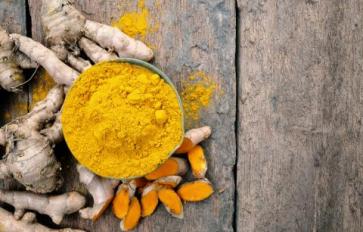
We hear quite a bit about the risks of consuming diet drinks, as well as MSG. But are they really as evil as is painted by many health websites? Let’s find out!
Is MSG bad for me?
Most people consider Monosodium Glutamate (or MSG) to be a mild, harmless flavor enhancer. From salad dressings to chips to most fast food – the use of MSG is unrestrained when it comes to the packaged food industry.
Why is MSG used?
Initially it was thought that the tongue can taste four kinds of tastes – sweet, salty, bitter and sour. However, there’s a fifth taste called umami which basically indicates a savory taste – like that in cheese or even tomatoes. MSG enhances this umami flavor which brings out the savoriness of the food – so basically MSG is used as a flavor enhancer to make the food tastier.
Why is MSG bad?
MSG is an excitotoxin – basically used by the brain as a neurotransmitter – which increases the pace of sending messages, overworking and exhausting the nerve cells, sometimes to the point of death. In effect, if MSG is a regular part of your diet, you are slowly killing brain cells. Even a normal dose of MSG – something you might ingest during a Chinese dinner -- can give you a pressure headache, heart palpitations and chest pains. MSG also passes from the mother to her unborn child via the placenta, so pregnant women should avoid it at all costs. In children and even adolescents, the blood-brain barrier has not been formed and so whatever they eat passes directly into the brain, thus amplifying the effect and damage that such neurodegenerative excitotoxins can cause. This is the reason why food containing MSG often has warnings printed on the packs against giving it to children and infants. It’s always better to make things like mayonnaise at home, rather than buying the MSG-stuffed one…
Does this contain MSG?
If you think that food companies call MSG by no other name, you’re wrong. To protect yourself from MSG, look for ingredients like autolyzed yeast, gelatin, glutamate, glutamic acid, maltodextrin, hydrolyzed pea protein and sodium caseinate. Also anything that starts with hydrolyzed, protein or hydrolyzed protein is just another hidden name for MSG.
Is aspartame bad for me?
To most people aspartame’s a sugar substitute and simply what makes diet soda sweet. To people who believe in the aspartame conspiracy, it’s poison. To the FDA, it’s safe to consume in reasonable amounts (for people who don’t have phenylketonuria) and so stands approved.
What is the FDA limit?
The FDA-approved aspartame ingestion limit is 50mg per kilo of body weight. That would mean that a male weighing 75kilos would have to take in 3,500mg of aspartame every day for it to cause him any harm. A cola has about 192 mg of aspartame while a sweetener sachet has 35mg. So unless you are having more than 18 diet sodas or 100 sweetener sachets every day, aspartame isn’t going to get you cancer, Alzheimer’s, birth defects, vision problems, psychological issues or any other such health problem.
Do we metabolize aspartame into harmful compounds?
Aspartame is about 200 times sweeter than sugar – so using it to sweeten something produces negligible calories. Upon ingestion, the small intestine rapidly hydrolyzes aspartame, breaking it down into aspartic acid, phenylalanine and methanol.
- Aspartic acid or aspartate is a common amino acid found in our diet. While high levels of aspartate may act as an excitotoxin, much like the glutamate found in MSG, you cannot ingest enough aspartame to cause any side effects from it.
- Phenylalanine is an essential amino acid found in meats, milk and fruits needed for the normal functioning of the body. The only health hazard it poses is for people with phenylketonuria – a genetic disease that renders them unable to process phenylalanine. This is why anything with aspartame is labeled as such and carries a warning for phenylketonurics.
- Methanol: You can and will ingest higher levels of methanol from fermented drinks as well as fruit juices – aspartame will not give you methanol poisoning.
That said, to boost its sales, Diet Pepsi has dropped aspartame due to increasing consumer concerns. Will you follow suit? Also, new research is pointing to the fact that after ten years of steady diet soda intake, the risk of heart disease and stroke increases phenomenally in women. So probably, it’s safer to take diet sodas off the regular consumption list.
So there you have it, MSG should be a definite no-no, and for aspartame, the jury is still out! Do you have any more information on this? Do share it with us in the comments section below…








